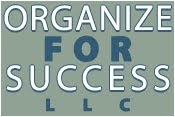 |
| Business Etiquette Basics |
- Exhibit courteousness. Avoid derogatory, rude or offensive language, particularly curse words. Stop interrupting others, even if you are afraid of forgetting the point you are wanting to make. Say "please" and "thank you". However, avoid overusing "thank you" in any single conversation; more than once or twice per conversation may dilute its impact.
- Nail introductions. Say your full name when introducing yourself. Stand whenever someone else is introducing you. If you are unsure whether those around you know one another, be proactive in introducing them to each other.
- Send thank you notes often. When interviewing for a job or new business opportunity, send separate thank you notes to each person interviewing you. Although email is acceptable, choose hand-written notes whenever possible.
- Mind your manners over meals. Always break bread with your hands since using a knife is considered inappropriate; tear off one piece at a time. Let wait staff do their jobs; don't push an empty plate away when you're finished, and avoid stacking dishes as you finish with them. Further, balance your food with whatever others order. If your guest orders an appetizer or dessert, do the same; make sure everyone is equally comfortable. Finally, any meal's host should always pay. If you did the inviting, you are the host and responsible for the bill.
- Master the skill of conversation. Come prepared with a few casual, non-business topics in mind, and, then, engage fully in the discussion. Never resort to pushing your business card on folks; instead, connect about what each of you needs and discuss how you can help one another. When at a networking event, have exit lines in mind so you can leave a conversation smoothly and politely, like "Nice to meet you", "Nice talking to you" or "See you at next week's meeting". Alternatively, when wrapping up a conversation, you can excuse yourself for a bathroom break, to get food or by explaining if you need to connect with someone else before leaving.
- Be aware of expectations regarding technology. You should never use your phone during meetings unless expressly suggested for social media promotion. When in a meeting, don't take calls, text or check email; instead, focus on the meeting discussion or presentation. Likewise, make sure you double-check each email before hitting send, and don't copy a recipient that does not need to be receiving that information; people are already overwhelmed with the loads of emails received daily and don't want additional messages that are unnecessary. Most importantly, don't say anything in an email, text or instant message that you don't want broadcast to the masses.
- Be respectful of colleagues and clients alike. Don't walk into someone's office unannounced or without asking that person's permission. Avoid gossiping, and don't eavesdrop on others' conversations. Then, when in the midst of your own conversation, be sure you are truly listening to what others are saying with an interest in understanding their viewpoints rather than being focused on how you will respond to what is being said. Further, realize that you don't ever know the full story because you aren't in someone else's hand so don't judge and don't make assumptions; ask questions and seek clarification.
With which of these business etiquette rules do you struggle the most? Which rules would you add to this list?

No comments:
Post a Comment